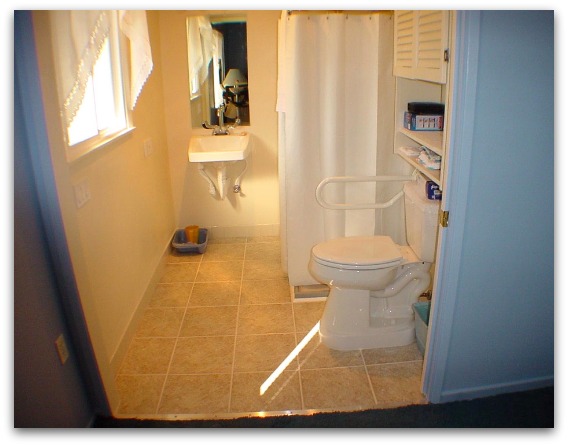One of the biggest challenges to designing for aging-in-place is the use of space – or rather, lack of it. This is especially true with the bathroom. Many older homes have very tiny bathrooms which makes it difficult to use a wheelchair or walker to get in and out of the bathroom.
“We often see bathrooms that have doors which open right against the toilet making it impossible to use a walker in the bathroom,” says Adam Fine of Accessible Design & Consulting.

A great solution is to replace the door and adjacent wall with a “pocket door” which slides in and out of the wall. The entire wall becomes a sliding door and creates a larger opening to the bathroom allowing plenty of space for going in and out.
This larger opening aids caregivers and users, especially those that require a wheelchair or walker for getting around their home. The pocket door creates space where there wasn’t any before.
If there isn’t enough wall space to create a pocket door, the next best alternative to creating space is to reverse the door so that it opens to the outside instead of the inside of the bathroom. Swing-Away Door Hinges are another great way to add space. They are very inexpensive and can add up to 2-inches to the doorway opening.
the inside of the bathroom. Swing-Away Door Hinges are another great way to add space. They are very inexpensive and can add up to 2-inches to the doorway opening.
Adam Fine is the founder and president of Accessible Design & Consulting, Inc. specializing in residential & commercial accessibility assessment, ADA consulting, and Accessible project management.



Pingback: Age in Place Design Challenge: Adding a Pocket Door to Create Space |